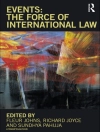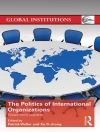Why do some countries welcome new arrivals from abroad while other nations are less hospitable? Why do immigration policies change over time? Fences and Neighbors considers several of the world’s wealthiest democracies, nations that remain magnets for economic migrants as well as for refugees. Focusing on the tendency of immigrants to concentrate in specific locations in their new homelands, this book is the first to analyze the implications of this political geography for democracies.
Politics of immigration control starts at the local level, Jeannette Money asserts. Drawing on detailed evidence from Britain, France, and Australia, and more briefly from the United States, she demonstrates that local support for and opposition to immigration is contingent upon economic conditions, as well as the numbers of foreigners entering the country and their access to the resources of the welfare state. Whether these local pressures are translated into policies of openness or closure at the national level depends on whether the local constituencies are critical to maintaining or gaining a national electoral majority.
About the author
JEANNETTE MONEY is Assistant Professor of Political Science at the University of California, Davis. She is coauthor of Bicameralism.












